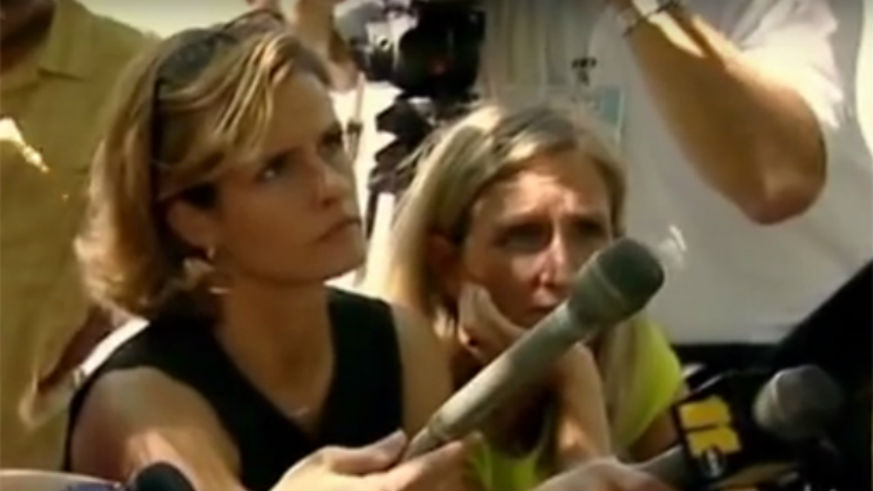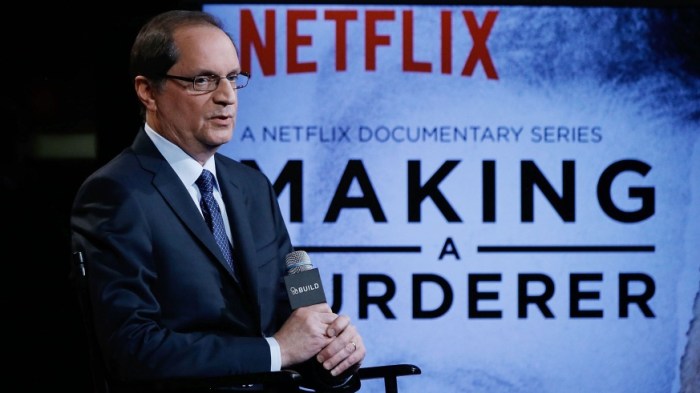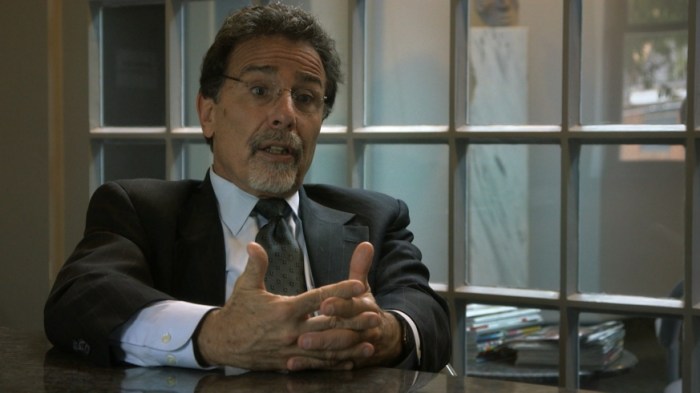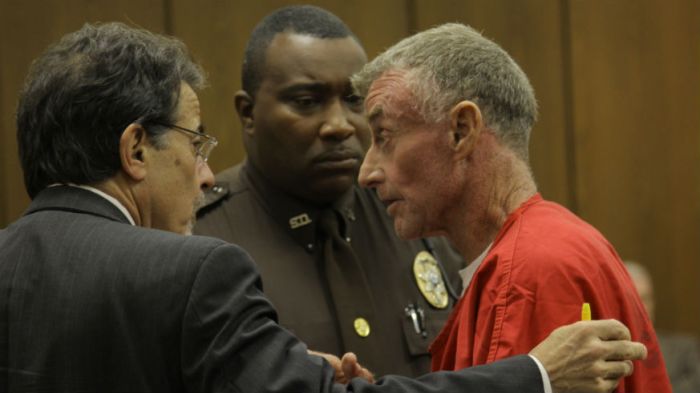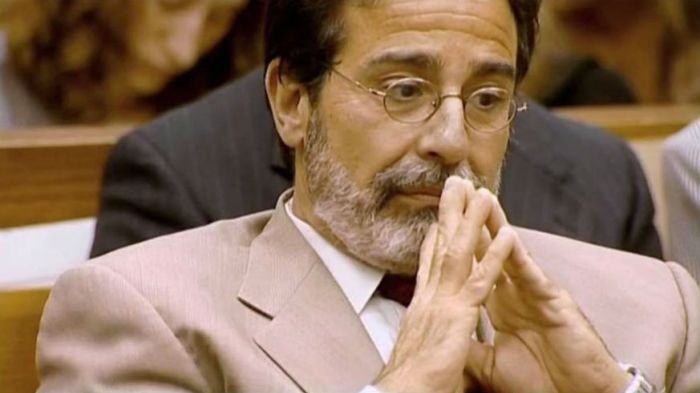Although The Staircase feels exhaustive in its coverage of the Michael Peterson case, following the convicted murder for a span of 15 years, there were things and people the documentary left out. Not all of these things were trivial, and there’s a controversial figure that they didn’t mention, though you saw plenty of her husband. We’re walking about Sonya Pfeiffer, the wife of Michael Peterson’s defence lawyer in the first trial, David Rudolph.
In fact, Sonya Pfeiffer was important enough to get her own section in Candace Zamperini’s victim impact statement during Michael Peterson’s second trial in 2017. It was edited out of the documentary, but we’ll break it down below.
Who is Sonya Pfeiffer, other than the wife of David Rudolf?
Sonya Pfeiffer was a journalist, according to Raleigh & Company, who covered the Michael Peterson trial in 2003 as a TV reporter. Like her husband, who was representing Peterson at the time, she was in the courtroom everyday for weeks covering the case for WTVD.
Why is Sonya Pfeiffer mentioned in Candace Zamperini’s statement?
You remember the fiery statement Kathleen Peterson’s sister Candace Zamperini gave at the 2017 trial at which Michael Peterson entered an Alford plea for voluntary manslaughter. It included the memorable line “Alford, Schmalford” and blazed with lines aimed at reminding Peterson that in the eyes of the law he will always be guilty. But that’s just the part of the victim impact statement that The Staircase let you see. It was edited, and included an equally seering section aimed at Sonya Pfeiffer.
Candace may have only given Sonya Pfeiffer, as Raleigh & Company reports, about a minute of her roughly 12.5 minute speech — but her words were anything but complimentary. She claimed that Pfeiffer “went to great lengths to cause me emotional pain,” an accusation she leverages against only two other people, and “betrayed me to the defense.”

But what exactly did Sonya Pfeiffer do to earn the mention? If you ask Pfeiffer, she did her job. “She pretended to be my friend, she came to my home for an exclusive interview. She invited me to dine,” Zamperini read with shaking hands. “She told me she believed my sister had fallen down the staircase. Sonya Pfeiffer had the hubris to come to Maplewood Cemetery without an invitation to hold hands with our family [at Kathleen Peterson’s headstone].”
“I was surprised by her comments,” Sonya Pfeiffer told the publication over email. “Like all good reporters, I put in a lot of legwork to convince her to talk with me.” The former reporter also says she “certainly did not provide any opinion on what I thought had happened to Kathleen Peterson.”
Was Sonya Pfeiffer left out of anything else?
Although it wasn’t mentioned in The Staircase, Sonya Pfeiffer also gained some attention during the 2003 murder trial. She was criticized for sending jurors a letter inviting them to a dinner and group interview for WTVD during deliberations. Both she and her news director at the station claimed the letter had been sent by mistake, intending it to reach the jurors after the deliberations had concluded.
“While you’ve been listening to evidence and watching the courtroom closely, I’ve been doing the same thing, but I’ve also been watching you and wondering what you’re thinking — from laughing at Dr. Lee’s ketchup experiment to taking notes during complicated computer testimony — it’s been like reading tea leaves to sort out your thoughts,” the letter read. “I’m hoping you might be willing to share some of those thoughts with me now that the evidence is behind us.”
The court was torn about what to do in the wake of the letters. The prosecution and defence differed greatly in how they wanted to proceed, but in the end Judge Hudson decided to simply caution the jurors about the letter, instructing them to disregard it entirely.
What happened to Sonya Pfeiffer after the trials?
Shortly after her coverage of the 2003 trial, Sonya Pfeiffer went back to law school, though she kept her job at WTVD. The degree was initially a tactic for Pfeiffer to pursue the kind of journalism she wanted. “My decision to pursue a law degree was related to my disillusionment with what was happening in local television news,” she explained of the decision. “I was disheartened by the lack of focus on quality content, and an increasing fixation on sensationalism.”
Though she hoped the degree would allow her to do more investigative journalism and legal reporting, she found that it was the courtroom that called to her. “I quickly realized there was a way to tell stories that made a real difference, and that was in the courtroom speaking on behalf of those who are marginalized too frequently, “ she explained to Raleigh & Company.
At her current firm, Sonya Pfeiffer “represents clients in white-collar investigations in federal court, felony cases in state court and indigent clients in federally appointed cases” and takes on additional pro-bono cases.

